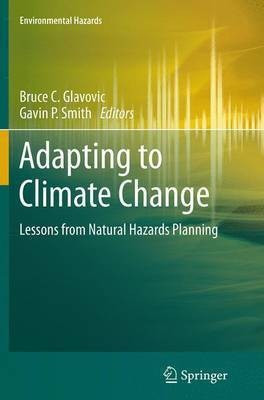Adapting to Climate Change(English, Paperback, unknown)
Quick Overview
Product Price Comparison
This book identifies lessons learned from natural hazard experiences to help communities plan for and adapt to climate change. Written by leading experts, the case studies examine diverse experiences, from severe storms to sea-level related hazards, droughts, heat waves, wildfires, floods, earthquakes and tsunami, in North America, Europe, Australasia, Asia, Africa and Small Island Developing States. The lessons are grouped according to four imperatives: (i) Develop collaborative governance networks; (ii) build adaptive capabilities; (iii) invest in pre-event planning; and (iv) the moral imperative to undertake adaptive actions that advance resilience and sustainability. "A theoretically rich and empirically grounded analysis of the interface between disaster risk management and climate change adaptation, comprehensive yet accessible, and very timely." Mark Pelling, Department of Geography, King's College London, UK. "This book represents a major contribution to the understanding of natural hazards planning as an urgent first step for reducing disaster risk and adapting to climate change to ensure sustainable and equitable development." Salvano Briceno, Vice-Chair, Science Committee, Integrated Research on Disaster Risk IRDR, an ICSU/ISSC/ISDR programme. Former Director International Strategy for Disaster Reduction, UNISDR. "What a welcome addition to the young literature on climate adaptation and hazard mitigation! Bruce Glavovic and Gavin Smith each bring to the editing task a rare blend of solid scholarly attainment and on-the-ground experience that shines through in this extensively-documented synthesis of theoretical ideas from the realms of climate and hazards and their validation in a rich set of diverse case studies pulled in from around the world. This book should remain a classic for many years." William H. Hooke, American Meteorological Society.


